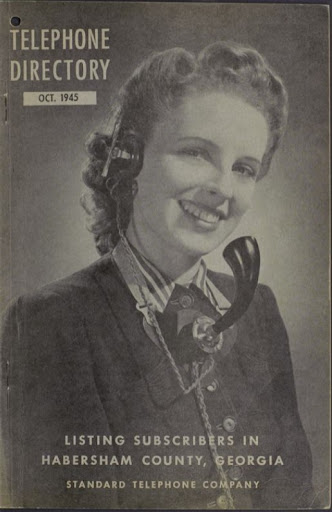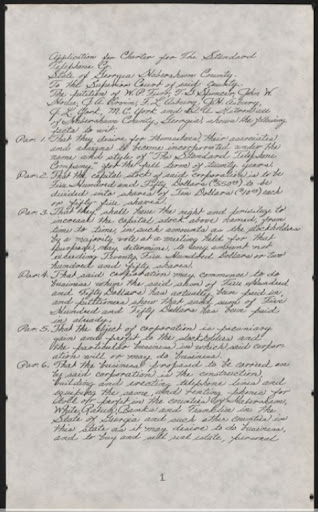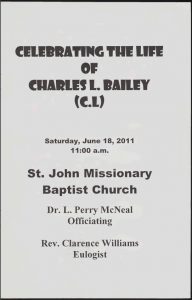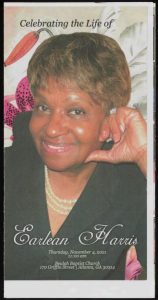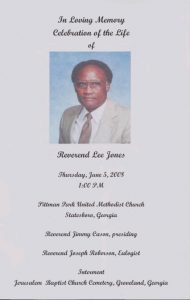Selected by statewide cultural heritage stakeholders and funded by the DLG’s competitive digitization grant program, this collection is the Habersham County Historical Society’s first collaboration with the DLG and is available here:
Standard Telephone Company Records
The collection contains historical materials dating from 1904 to 1999 that come from the archives of the independently-owned Standard Telephone Company. Headquartered in Cornelia, it provided telephone service to rural northeast Georgians. Among the materials are items recognizing fifty years of service from the Standard Telephone Company’s longtime employee, Henry Davis, an African-American telephone engineer, the first in Georgia and possibly the nation.
Dean C. Swanson, former president of STC Holdings, and Jim Johnson, former president of Standard Telephone Company, jointly establish the importance of making this work accessible freely online.
“The Independent Telephone Companies in Georgia had the most difficult economic and physical deployments due to the nature of the rural areas; these pioneers persevered with great risks. Digitization would be a great tribute to them. Additionally, the circumstances and conditions under which the Standard Telephone Company was developed are highly generalizable. They can serve to glean similar processes in other rural areas for which this kind of history is not available. While the Habersham County Historical Society has a museum of Standard Telephone’s history and phone apparatus, we know too well that the younger generation will often turn to online digitized history to learn about the history of this industry. Given that, we feel digitizing this information is of great value to future generations.”
About the Habersham County Historical Society
The Habersham County Historical Society was formed on February 22, 1973, by twelve citizens from Clarkesville, Cornelia, and Demorest on the campus of Piedmont College. In 2018, the society compiled the county’s history in a bicentennial publication: A Brief History 1818 – 2018, Habersham200: New Thoughts of Old Things. To celebrate the society’s 50th Year Golden Jubilee – a commemorative edition was published and is available on Amazon. The celebration was hosted by Piedmont University on March 11, 2023, and celebrated the entire county.
Visit https://www.habershamcountyhistorical50.com/ for highlights of the celebration.
You can find Habersham County Historical Society online at: https://habershamhistoricalsociety.org/.
About the Digital Library of Georgia
The Digital Library of Georgia (DLG) serves as Georgia’s statewide cultural heritage digitization initiative. It is a joint project between the University of Georgia Libraries and GALILEO. The DLG collaborates with Georgia’s cultural heritage and educational institutions to provide free online access to historic resources in Georgia. The DLG not only develops, maintains, and preserves digital collections and online resources but also partners to build digitization capacity and technical infrastructure. It acts as Georgia’s service hub for the Digital Public Library of America (DPLA) and facilitates cooperative digitization initiatives. The DLG serves as the home of the Georgia Newspaper Project, Georgia’s print journalism preservation project.
Selected images from the collection:
Title: Telephone Directory 1945
URL: https://dlg.usg.edu/record/hchsi_stcr_stc-pd1945
Collection: Standard Telephone Company records
Courtesy of the Habersham County Historical Society (Ga.)
Description: 1945 telephone directory for the Standard Telephone Company of Cornelia, Georgia, which served Habersham County in northeast Georgia.
Title: Original company charter STC
URL: https://dlg.usg.edu/record/hchsi_stcr_stc-charter
Collection: Standard Telephone Company records
Courtesy of the Habersham County Historical Society (Ga.)
Description: Original company charter for the Standard Telephone Company of Cornelia, Georgia.
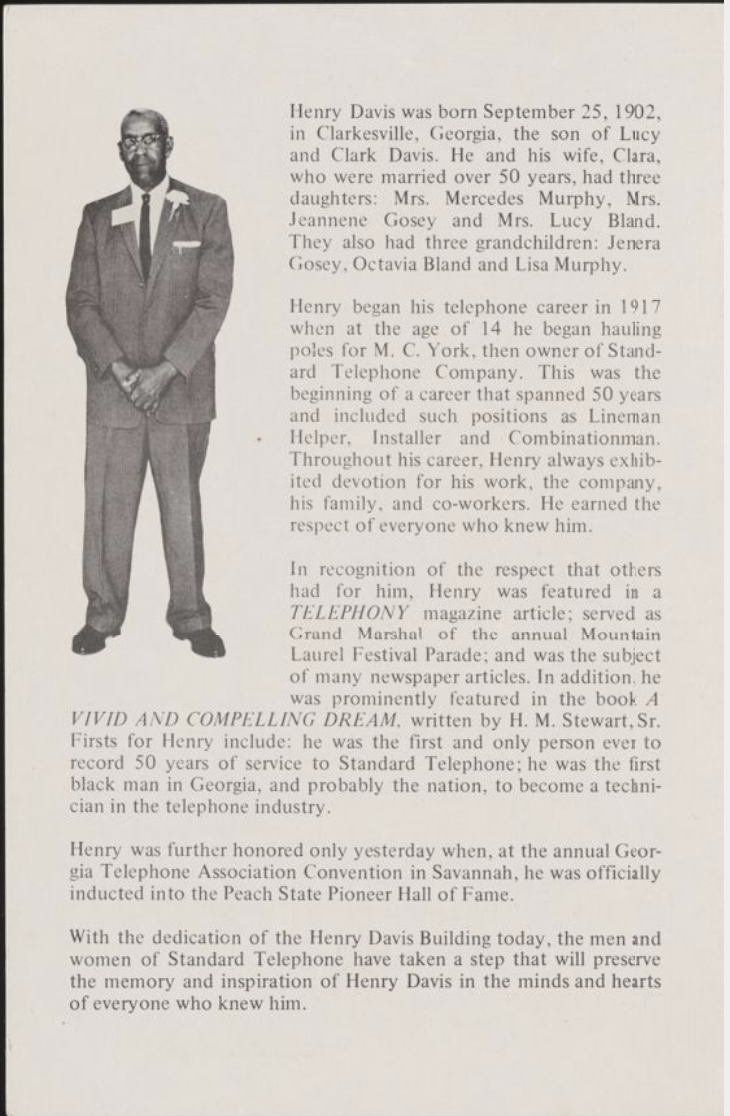
Title: DEDICATION Henry Davis Building June 21, 1986
URL: https://dlg.usg.edu/record/hchsi_stcr_stc-dedication
Collection: Standard Telephone Company records
Courtesy of the Habersham County Historical Society (Ga.)
Description: Page 2 of a pamphlet celebrating the dedication of the Henry Davis Building, recognizing fifty years of service from the Standard Telephone Company’s longtime employee, Henry Davis. Davis was an African American telephone engineer, the first in Georgia and possibly the nation.

